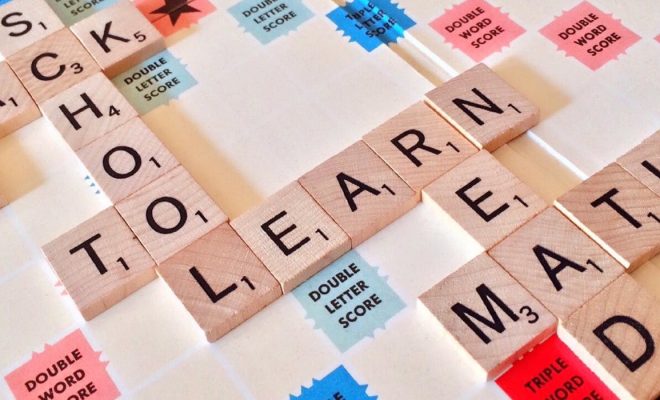Pass or Fail: Retention and its Roots in Early American Public Education

In this multi-part series, I provide a dissection of the phenomenon of retention and social promotion. Also, I describe the many different methods that would improve student instruction in classrooms and eliminate the need for retention and social promotion if combined effectively.
While reading this series, periodically ask yourself this question: Why are educators, parents and the American public complicit in a practice that does demonstrable harm to children and the competitive future of the country?
Today’s practice of retaining students is a far cry from what took place in America’s earliest public school classrooms.
Before assessing the American education system, it is necessary to understand where our roots lie. We must consider how public education became enshrined in the United States, what the objectives of public education were, how the public education system in the United States was developed, and what efforts have been made to reform the system since its inception.
The United States should be viewed from an educational standpoint as an essentially European-derived enterprise. In particular, because of the religious make-up of the first European settlers, we have a strong Protestant lineage. The goal of America’s public education system has been relatively consistent: to produce satisfying outcomes in eight broad categories:
- Basic academic knowledge and skills, including reading, writing, math skills, and knowledge of science and history.
- Critical thinking and problem-solving abilities, including the ability to analyze information and apply knowledge to new situations.
- Appreciation of the arts and literature, including participation in and appreciation of musical, visual, and performing arts as well as cultivation of a love of literature.
- Preparation for skilled employment, including appropriate workplace qualifications.
- Social skills and a strong work ethic, including communication skills, a feeling of personal responsibility, and the ability to work with and interact with others from varied backgrounds.
- Citizenship and community responsibility, including public ethics and knowledge of how government works.
- Physical health, including lifelong exercise and healthy eating habits.
- Emotional health, including self-confidence and respect for self and others.
In 1749 Benjamin Franklin pioneered American thinking on education by proposing that Pennsylvania establish a public academy of education for adolescents. Franklin suggested that such an institution should also emphasize physical fitness, as well as academics. A man of many ideas and insights, Franklin also spoke up on the importance of studying history, because it taught students temperance, order, frugality, and perseverance. Franklin thought schools should require competence in reading, arithmetic, and science, and that they should be accountable for teaching these skills. However, Franklin and his contemporaries did not envision assessments of the quality of educational institutions based on how well students acquired the skills and knowledge.
The Federalists, led by Alexander Hamilton, held yet a slightly different view on education, suggesting that universal education would assist in socializing citizens, helping them to accept the values of their rulers, but also preparing young people for a “law-abiding” adulthood.
Falling somewhere between the aforementioned two perspectives was George Washington, who contended in his first State of the Union address that Congress should promote schools that taught citizens how “to value their own rights.” Washington recognized that public opinion makes policy in a democracy and, as a result, “it is essential that public opinion should be enlightened.” In none of these instances, though, does it appear that rigid standards for reading, writing, and arithmetic are the foundation for accountability. Schools were expected to go well beyond such basic provisions and, in effect, become responsible for the creation of productive, well-informed, and engaged citizens.
More than 70 years after Franklin’s comments on the components of an optimal public education, Jefferson clarified and elaborated. Jefferson believed a proper education should give all citizens the information they needed to undertake transactions at their businesses. He thought it should enable citizens to calculate for themselves, express their ideas, contracts, and accounts in writing; to improve their morals and faculties via reading, and to understand their duties to their neighbors and country.
The 1780 Massachusetts Constitution, drafted by John Adams, another of the founding fathers, laid out the first legal requirement for public education. This state constitution noted that the duty of the legislative and executive branches would be to maintain public schools. “Wisdom and knowledge,” the document declared, “as well as virtue, diffused generally among the body of the people, [is] necessary for the preservation of their rights and liberties. In addition to teaching academic subjects, public schools should also be required to include lessons on the principles of humanity and general benevolence, public and private charity, industry and frugality, honesty and punctuality, sincerity, good humor, and all social affections, and generous sentiments.”
There is clear evidence that the government took to heart much of what the founding fathers had to say on this topic. The 1787 Northwest Ordinance provided funds to new states that allowed them to establish public education systems, declaring that “religion, morality, and knowledge, being necessary for good government and the happiness of mankind, schools and the means of education shall forever be encouraged.”
Even in the earliest days of America, the notion that public education was a necessity was accepted. Of course, at that time the nation lacked the infrastructure to provide effective access to public education, so such support was mostly theoretical. Still, there were many who came forward in support of a public education system that embraced most, if not all, of the ideas and principles that the founding fathers had set forth.
This basic support was founded on the fact that people believed in access to education as a right — a belief that would be dissected over time to bring us to the retention-social promotion context of today.






